Kate Baggaley
Kate Baggaley was the fall 2014/spring 2015 intern at Science News.

Trustworthy journalism comes at a price.
Scientists and journalists share a core belief in questioning, observing and verifying to reach the truth. Science News reports on crucial research and discovery across science disciplines. We need your financial support to make it happen – every contribution makes a difference.
All Stories by Kate Baggaley
-
 Animals
AnimalsNew frog species discovered in New York City
A new frog species lives up and down the East Coast. It was discovered when ecologists realized its ‘ribbit’ was distinct from the calls of a lookalike species.
-
 Health & Medicine
Health & MedicineHarmless bacterium edges out intestinal germ
Researchers treated C. difficile infections in mice with a closely related bacteria that blocks C. difficile growth.
-
 Archaeology
ArchaeologyIce Age hunter-gatherers lived at extreme altitudes
Two archaeological sites in the Andes indicate that hunter-gatherers inhabited extreme altitudes earlier than previously thought.
-
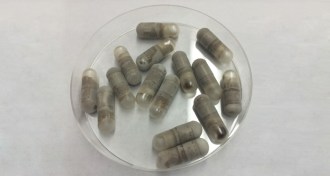 Health & Medicine
Health & MedicinePoop-transplant pills treat intestinal infection
Frozen capsules stuffed with healthy gut bacteria from donated poop fight C. difficile infections.
-
 Health & Medicine
Health & MedicineImpotence drug boosts insulin in some with diabetes
A drug called yohimbine lets some people with diabetes secrete more insulin by stopping pancreas cells from binding adrenaline molecules.
-
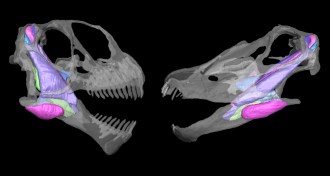 Paleontology
PaleontologyPlant-eating dinosaurs coexisted by munching different vegetation
Differences in skulls allowed sauropods to coexist in an arid landscape by enabling the dinosaurs to tackle different plants.
-
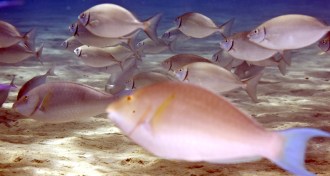 Animals
AnimalsInvasive rabbitfish team up to raze algal forests
Tropical rabbitfish have expanded into temperate Mediterranean waters, where they destroy algae forests by gobbling both young and adult algae.
-
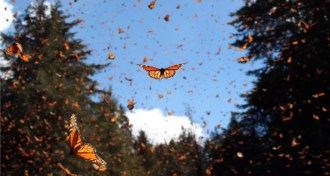 Animals
AnimalsMonarch butterflies’ ancestors migrated
The earliest monarch butterflies originated in North America and were migratory. Some of the insects later lost that ability as they moved into the tropics, a genetic analysis finds.
-
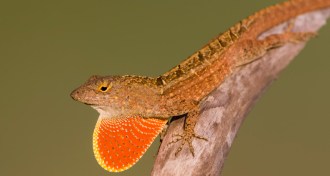 Animals
AnimalsEven on remote islands, busy ports mean more invasives
Islands with lots of trading ties are more likely to be colonized by invasive species, even when they are geographically remote, a new study of anoles reveals.
-
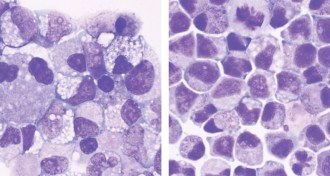 Life
LifeMolecule boosts numbers of stem cells in umbilical cord blood
A new molecule multiplies stem cells in umbilical cord blood. More blood-making stem cells could mean more effective transplants for people with blood cancers.